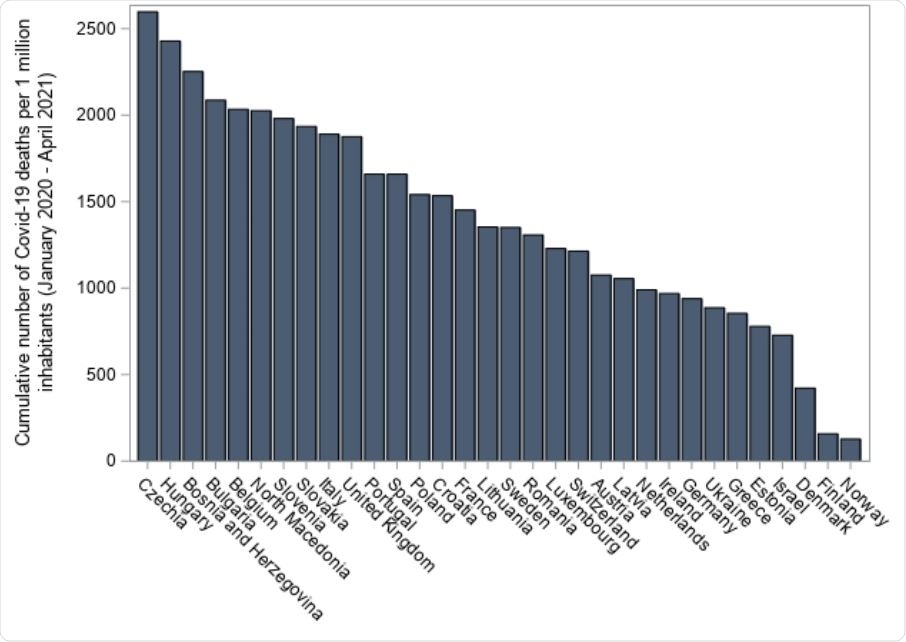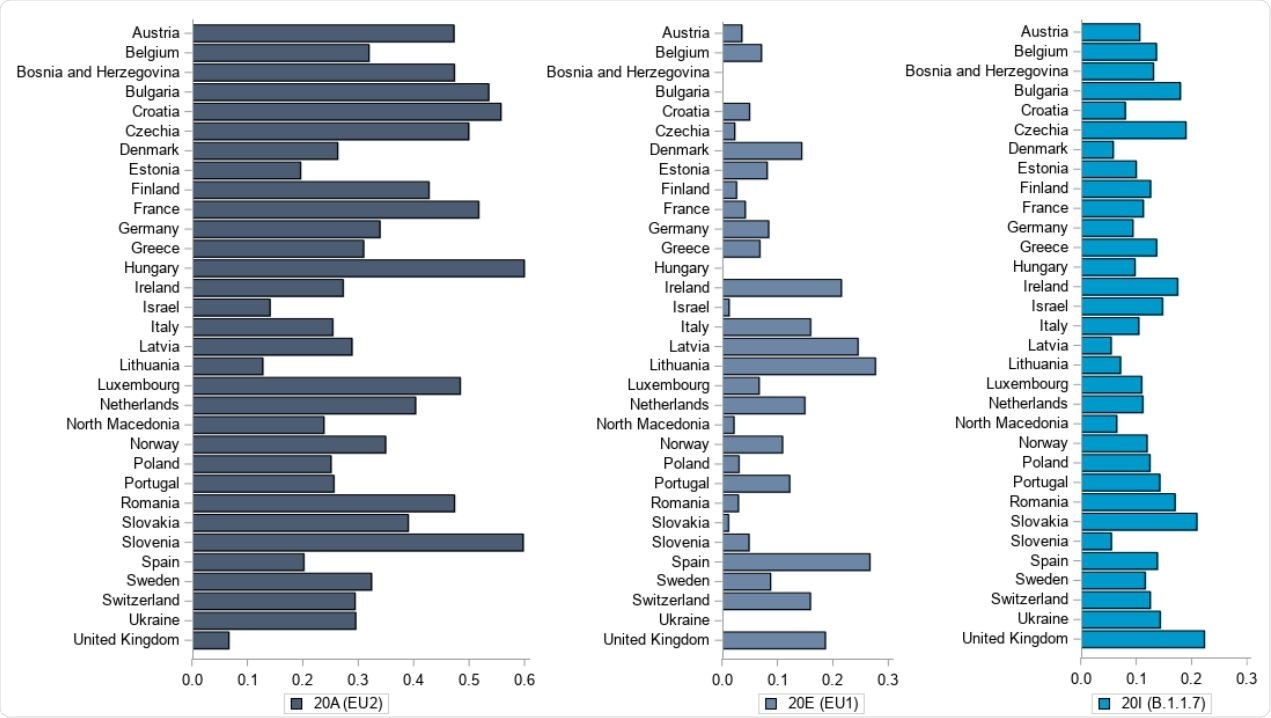Vaccination efforts against the severe acute respiratory syndrome coronavirus 2 (SARS-CoV-2), the pathogen behind the coronavirus disease (COVID-19) pandemic, have rolled out in many countries. Europe and Israel were among the first to vaccinate residents.
Now, researchers at Aix Marseille University and consultancy group Creativ-Ceutical aimed to determine if these vaccination campaigns have effectively reduced deaths in Europe and Israel.
The study, which appeared on the pre-print server, medRxiv*, confirms the potent efficacy of COVID-19 vaccination based on real-life public data in terms of protection against death.
Vaccination efforts against COVID-19
The coronavirus pandemic first emerged in December 2019 in Wuhan City, China. From there, it has spread to 192 countries and territories. To date, over 171 million people have been infected with SARS-CoV-2, and of these, more than 3.68 million people have died.
Due to the severity of the outbreak, researchers and vaccine manufacturers worked tirelessly to develop effective and safe vaccines. However, during the second half of 2020, new variants of concern emerged, threatening the effectiveness of these vaccines.
One of the first variants reported was the B.1.1.7 variant (Alpha) that occurred in the United Kingdom in September 2020. At the same time, the B.1.351 variant (Beta) called the South African variant emerged, followed by the Brazilian variant, also known as P.1 (Gamma). Recently, India reported skyrocketing number of cases tied to the emergence of a new variant called the B.1.617 variant (Delta) or the Indian variant.
The B.1.1.7 variant showed increased transmissibility and hospitalization. Some studies have shown that the variant may increase the risk of death tied to COVID-19. The B.1.351 variant was found to have increased transmissibility and immune escape, making some vaccines less effective.
The worldwide vaccination campaign started in December 2020, which aims to provide herd immunity across societies. Scientists placed the threshold for COVID-19 herd immunity between 60 and 70 percent of the population.
However, despite widespread vaccinations, some people are still hesitant to receive the vaccine. Scientists warned that vaccine hesitancy and the spread of new variants might hinder the population from attaining herd immunity.
Israel is leading in the vaccination campaign against COVID-19, as it went far ahead of other countries in terms of the proportion of vaccinated residents, surpassing 62 percent at the end of April 2021. The U.K. and the U.S. have reached 50 percent and 42 percent, respectively.
The vaccines that received an emergency use authorization (EUA) from the Food and Drug Administration (FDA) include the Pfizer-BioNTech, with 95 percent efficacy at preventing symptomatic COVID-19, Moderna vaccine with a 94.1 percent efficacy, Oxford-AstraZeneca with a 70.4 percent efficacy, Johnson & Johnson with 66.5 percent efficacy, and Novavax, with 96.4 percent efficacy.
The study
In the current study, the researchers aimed to estimate the real-life impact of vaccination on COVID-19 mortality based on publicly available data from Europe and Israel. The team utilized time series analysis with non-linear mixed regression models.

Cumulative number of COVID-19 deaths per 1 million inhabitants across countries

 This news article was a review of a preliminary scientific report that had not undergone peer-review at the time of publication. Since its initial publication, the scientific report has now been peer reviewed and accepted for publication in a Scientific Journal. Links to the preliminary and peer-reviewed reports are available in the Sources section at the bottom of this article. View Sources
This news article was a review of a preliminary scientific report that had not undergone peer-review at the time of publication. Since its initial publication, the scientific report has now been peer reviewed and accepted for publication in a Scientific Journal. Links to the preliminary and peer-reviewed reports are available in the Sources section at the bottom of this article. View Sources
The study, which involved 32 countries across Europe, including Israel primarily focused on evaluating COVID-19 deaths on a daily basis. In addition, the team also looked at the percentage of vaccinated residents and the proportions of SARS-CoV-2 variants across strains.
Based on real-life public data, the study confirms the effectiveness of COVID-19 vaccination, although at a lower level than expected from clinical trials. Thus, there is no indirect protection for non-vaccinated individuals. In addition, vaccination effectiveness against mortality associated with variant B.1.1.7 appears to be somewhat lower than for other variants.

Mean SARS-CoV-2 variants proportions across countries, between January 2020 and April 2021
Finally, this analysis confirms that reducing mobility, as well as mobility between countries, is an effective way to reduce COVID-19 mortality and that seasonal variations in COVID-19 incidence may exist.

 This news article was a review of a preliminary scientific report that had not undergone peer-review at the time of publication. Since its initial publication, the scientific report has now been peer reviewed and accepted for publication in a Scientific Journal. Links to the preliminary and peer-reviewed reports are available in the Sources section at the bottom of this article. View Sources
This news article was a review of a preliminary scientific report that had not undergone peer-review at the time of publication. Since its initial publication, the scientific report has now been peer reviewed and accepted for publication in a Scientific Journal. Links to the preliminary and peer-reviewed reports are available in the Sources section at the bottom of this article. View Sources
Source:
Journal references: